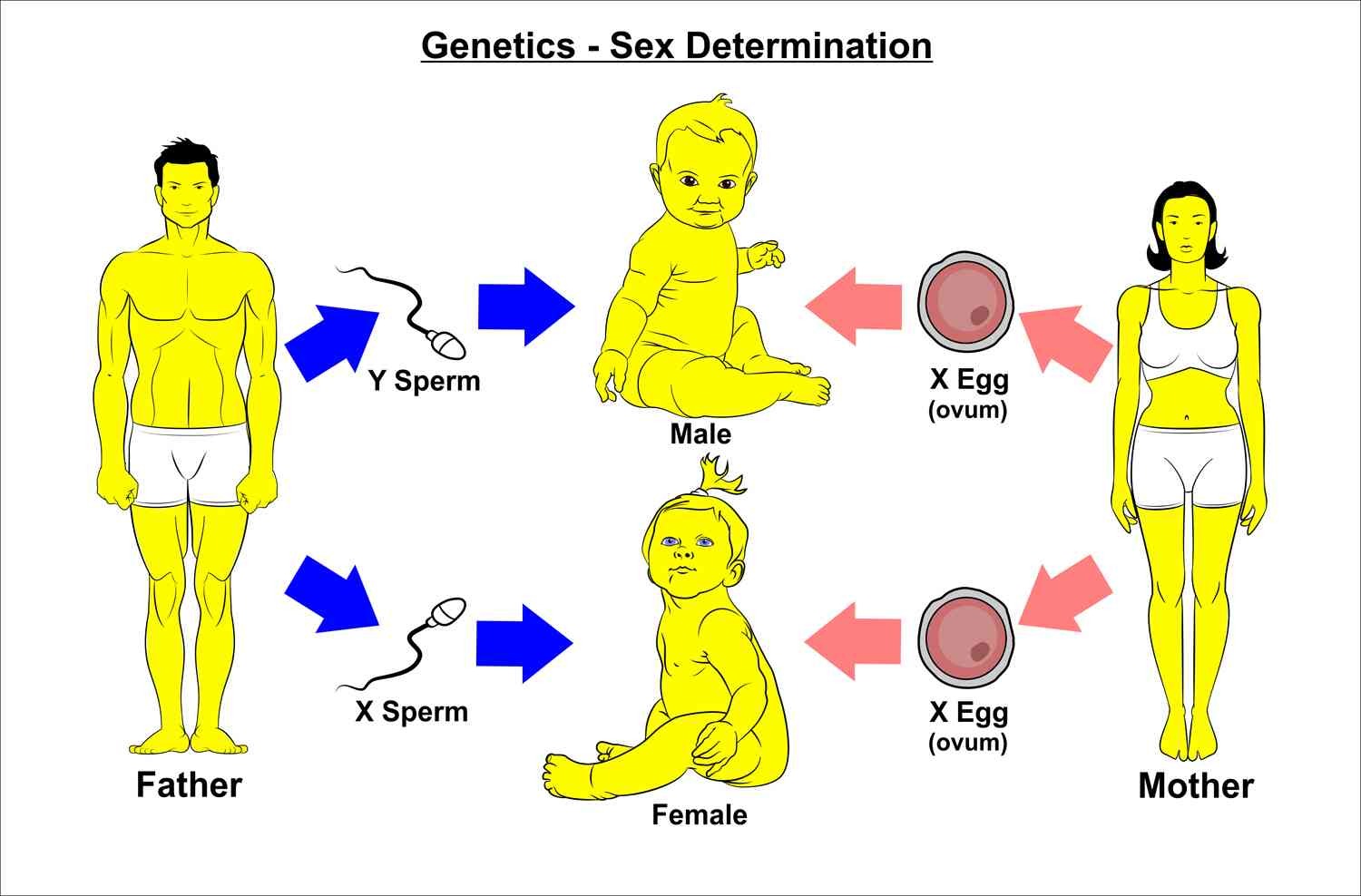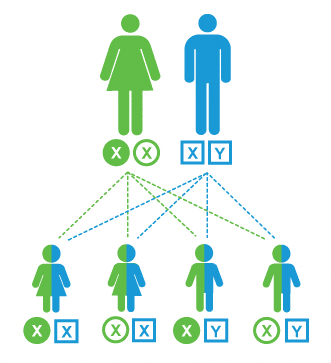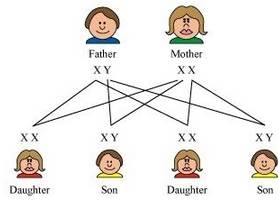When a child is conceived, half of the DNA comes from the father, and the other half comes from the mother. All women carry the X chromosomes. All eggs that a woman produces have this chromosome. Men, on the other hand, carry two different ones: X and Y. The sperm that a man produces always carry an X and half of a Y. But what does this mean about who determines the sex of a child? Are there any ways to select the sex of your child?
Who Determines the Sex of a Child?
The male will determine the sex of a child. Here’s why:
When it comes to the chromosomes, mothers have two sex chromosomes known as “XX” or the homogametic sex. Men have two sex chromosomes too, but they are different than that of the mother: They are the “XY” chromosomes, also known as the heterogametic sex.
A baby gets chromosomes from the mother and father. The mother always gives the X sex chromosome, because that is all she has to give. The father, however, can give either an X or a Y. This means that the father is who determines the sex of a child.



In fact, the Y chromosome has a gene called “sex determining region Y.” This is also known as SRY. The SRY can create testes in the embryo, which then produce androgens, or hormones that are found in the male. These androgens prompt the embryo to begin developing into a male. If the androgens are not released, the embryo becomes a female.
What About Twins?
Because of the way the chromosomes interact, the statistics show that there is a roughly equal chance of having a boy or a girl. If the pregnancy is twins, fraternal twins – those who are developed from two separate eggs – have the same boy/girl odds as a singleton pregnancy. Identical twins are a bit different, because they come from one egg that splits in two, so they will have the same gender.
Sometimes the process goes awry and there are issues with the sex chromosomes. However, remember that this is extremely rare. Most people will never have to worry about whether they are biologically a boy or a girl.
Can You Choose the Sex of a Child?
In most cases, the short answer is no, you cannot choose the sex of a child. That’s because who determines the sex of a child might be the father, but he has no control over which chromosomes are carried in the sperm, and which sperm will fertilize the egg.
However, in-vitro fertilization can change all of that. Since the child is created in the laboratory and the egg is joined with the sperm through manual means, a scientist can choose the embryos that are boys or girls, and implant those in the woman’s uterus. However, some people believe that this is “playing God” and is entirely unacceptable.
Even so, some continue to want to choose the gender. There is the “natural” way and then there is the high-tech way.
Natural Way
Some believe that there are increased chances of having a boy or a girl if you try certain positions or have sex at certain times of the month. This might work because male sperm tends to be faster than female sperm, and it also tends to live a shorter lifespan. Therefore, those who want to have a boy should have intercourse closest to the release of the egg, and should have it in the “doggie” position to ensure the sperm is closest to the cervix. Those who want a female should have missionary sex in the two to four days before the egg is released, so the slower female sperm have a chance to get to the egg.
High Tech Way
Those who want to make certain they get one particular gender can have the sperm sorted in the laboratory, so only sperm that contain the female or male chromosome will reach the eggs. This is done through testing that includes laser light and dye. The sperm are then inserted into the woman in the hopes of fertilizing the egg.
The Bottom Line
The options are obviously very limited if someone is wanting to make sure they have a boy or a girl. Since it is not a matter of who determines the sex of the child, but rather, the sperm that reaches the egg, there isn’t much control unless a person wants to go to the time and expense of high-tech options. The best bet is to simply hope for a happy, healthy child, no matter what gender that child might be.
More You Should Know About Human Genetics
Learning more about human genetics can help you understand not only who determines the sex of a child, but how that child develops. These excellent links can give you much more insight into human genetics:
Tricks on having a boy or a girl:
http://www.babycentre.co.uk/a549359/can-you-choose-to-have-a-boy-or-girl
Dominant and recessive traits in babies:
http://www.newhealthadvisor.com/Dominant-and-Recessive-Traits.html
How to have twins:
http://multiples.about.com/od/funfacts/tp/howtohavetwins.htm
